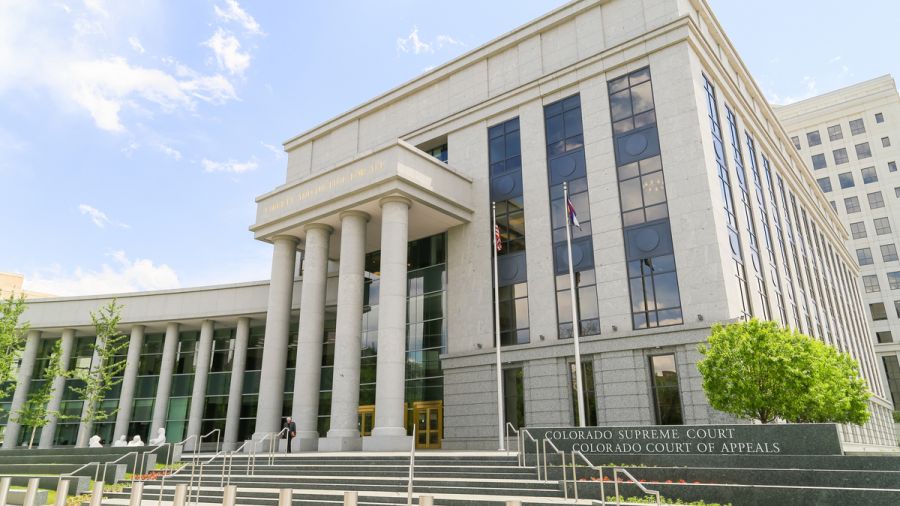The Colorado Court of Appeals ruled in a decision released June 20 that a man is not eligible to claim the full winnings of a $4.8 million lottery prize.
On November 23, 2005, a Colorado Lotto jackpot worth $4.8 million was split by three winners. Amir Massihzadeh, who held one set of winning numbers, walked away with his share of $568,990 after taxes, and moved on with life.
Ten years later, however, Massihzadeh was paid a visit by agents from Colorado Bureau of Investigation. The agents explained to him that they were investigating a massive criminal conspiracy to rig lottery systems in multiple states. It appeared that the other two ticket-holders who split the 2005 Colorado’s jackpot prize with Massihzadeh only won because they cracked the lottery machine.
Eddie Tipton was a trusted lottery employee. Little did they know, he fixed the numbers for his own selfish gain.
Watch the NEW documentary Cover Story: The Notorious Lottery Heist TONIGHT 7p on #GSN https://t.co/EnNvI0n3q1 pic.twitter.com/vA8kfsvWPz
— Game Show Network (@GameShowNetwork) January 28, 2018
Massihzadeh, who let the machine choose his numbers, was not aware of any fraudulent activity, reported Denver Post. The only rightful winner of that jackpot, Massihzadeh wanted the full prize of $4.8 million he was entitled to.
A year-long court battle started in 2017 when the Colorado Lottery refused to award the entire jackpot to Massihzadeh. The Denver District Court ruled in favor of the state lottery, saying that when Massihzadeh signed the lottery ticket he was locked in a contract to settle on whatever he might receive, according to the Denver Post.
Court rejects Boulder man’s claim to full $4.8 #Colorado Lottery jackpot he unwittingly split with scammers https://t.co/S4ArPVDeNG
— The Denver Post (@denverpost) June 20, 2019
A panel of three judges of the Colorado Court of Appeals reaffirmed the District Court’s decision this Thursday, reported the Colorado Sun, saying Colorado law is clear that state lottery was absolved of any liability when they paid Massihzadeh, even if he was the sole legitimate winner of a larger prize.
“Nevertheless, Massihzadeh attempted to avoid this result by arguing that he had not been paid the ‘prize,’” Judge Daniel Taubman wrote in the court’s opinion. “However, the statute prescribes that, upon payment of ‘any prize,’ the Lottery Division’s liability is discharged.”
“Since the phrase “any prize” is undefined, we accord “any” its meaning when used as an adjective in a statute—’all.’ Therefore, we conclude that the acceptance of payment of one-third of the jackpot to by Massihzadeh constituted a payment of ‘any prize,’ sufficient to trigger the Division’s immunity.”
“The Colorado Lottery Division is discharged from all liability upon payment of any prize—not a ‘designated prize,'” wrote Judge Taubman. “Mr.Massihzadeh’s receipt of one-third of the jackpot was clearly ‘any prize.'”
The case might ultimately be submitted to the Colorado Supreme Court, according to the Colorado Sun.
“We will be discussing with our client tomorrow and thereafter make a decision if we will file a petition for certiorari to the Colorado Supreme Court,” said Robert Duncan, one of Massihzadeh’s attorneys.
Prosecutors will ask for a 25-year prison sentence for Eddie Tipton. https://t.co/iO9yZ4QsB3
— The Denver Post (@denverpost) June 30, 2017
Before the November 2005 drawing in Colorado, Eddie Tipton, the director of information security of Multi-State Lottery Association (MUSL), manipulated the computer software to defraud the lottery, says the Colorado Court of Appeal. Tipton was able to forecast the winning combination and transferred the information to his brother Tommy and a third party, allowing them to purchase two winning tickets.
In a series of similar scams which would later be known as the “Hot Lotto fraud scandal,” the Tiptons managed to rig lottery drawings in several other states, including Iowa, Wisconsin, Kansas and Oklahoma. With lottery prizes of over $24 million hijacked, it was considered the worst lottery scam in the U.S. history, reported the Des Moines Register.


